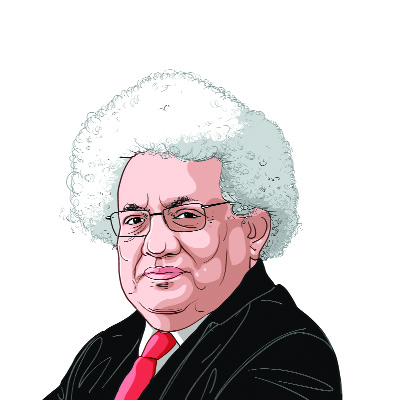Opinion One more decision
Khushwant Singh is a great novelist and a prolific journalist but his statement that Dr Manmohan Singh is a greater Prime Minister than Nehru or Indira Gandhi can cause nothing but trouble for the PM....
Khushwant Singh is a great novelist and a prolific journalist but his statement that Dr Manmohan Singh is a greater Prime Minister than Nehru or Indira Gandhi can cause nothing but trouble for the PM. After all,this is not the Indian way. Now Newsweek has compounded the problem by naming him the leader other leaders like to deal with.
The Newsweek story reveals the one quality Manmohan Singh has which is in short supply everywhere at the top: an ability to listen to peoples problems and then give a thoughtful answer. Do not underestimate this ability. In politics,most have no ability to listen,let alone give a thoughtful answer. There are much better speakers than the PM but one should not mistake speech-making for leadership.
His reticence in speaking,a very un-politician like quality,often misleads people. They think he is weak or confused or indecisive. He has,of course,been Prime Minister in coalition governments where caution is required. Despite this,Manmohan Singh did act boldly when he was Finance Minister in a government where the Congress did not have a majority. He did negotiate the US-India nuclear deal. Thus,the quiet demeanour hides an ability to make big decisions when necessary.
There is,however,one problem which is still pending on Dr Manmohan Singhs in-tray. For India to solve it,it will need all his skills. This problem is Kashmir. The Valley has been in turmoil once again but this time it looks more serious than before. Yet,the many debates on TV channels have barely faced the issue in its starkness. The problem in Nagaland has been around practically for as long as it has been in Kashmir but Kashmir is different. As soon as it gets into trouble,experts come tumbling out telling us why we should not worry and it will all pass if only we are patient or tough or generous. Such gestures no longer suffice. The problem is deeper.
Kashmirs integration into India is a birthmark of Independence. This is why Kashmir can never be a normal part of the Union. The more we assert that it is an integral part,the more it is treated as a special case. There are civil society groups defending Maoists and asking for investigation of police atrocities. There is no civil society group,as far as I know,on mainland India to raise the banner for Kashmir. Kashmir has been in one or other kind of trouble since 1989 if not 1953. Yet the people of mainland India regard these problems as esoteric.
Kashmirs problem is not unemployment or lack of development. It is not about inclusive development. It is about inclusion. Kashmirs problem is that it is neither like the other states of India nor is it truly autonomous. Its status has been peculiar ever since accession. Sheikh Abdullah questioned it and asked Nehru to regularise it by holding a referendum. He was put in jail. Fifty-seven years later,this is still the demand. This is what azadi means.
Why cant the Kashmiris be happy to be part of a vibrant democracy like the rest of India? The answer is that the rest of India does not have an army presence of the size Kashmir has had for as long as it has. Normal life is not normal there as it is elsewhere in India. This is so,despite the very successful election which brought Omar Abdullah to his present position.
What once may have been infiltration from across the border by Islamist extremists has now become an intifada. This is why we have large crowds of civilians,not with bombs strapped to their bodies but with stones in their hands. They demand normalcy.
It would be a supreme gesture on part of the Prime Minister if he throws down the gauntlet to the separatists and to Pakistan and promises to hold a referendum on the question of where Kashmiris belong. It could be monitored by independent observers. India should be confident that it will still be the choice of the majority. There is nothing to fear but fear itself.


